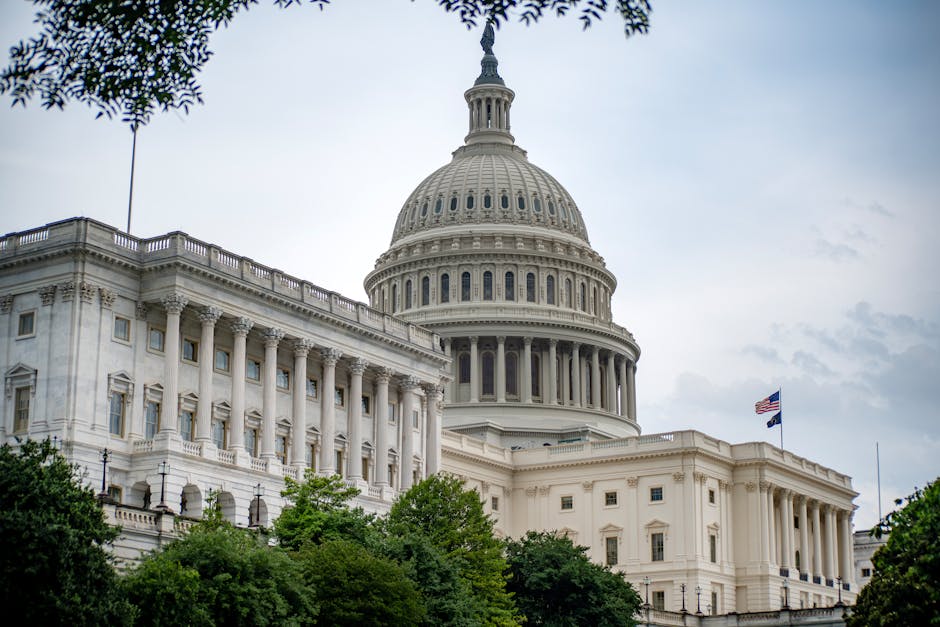The recent Senate Agriculture Committee’s scrutiny of Brian Quintenz for the helm of the Commodities and Futures Trading Commission (CFTC) brings to the forefront the intricate balance between sports betting innovation and regulatory oversight. With a tenure as a CFTC Commissioner from 2017 to 2021, Quintenz’s nomination by President Trump has sparked a debate over his gaming industry ties and the potential for conflicts of interest, highlighting the broader conversation on the regulation of sports prediction markets.
Exploring the Controversy: Financial Ties and Tribal Gaming Rights
Democratic senators such as Amy Klobuchar, Adam Schiff, and Cory Booker have raised alarms over Quintenz’s financial engagements, particularly with KalshiEx and Andreessen Horowitz’s crypto fund, pointing to a complex web of potential conflicts.
“Even if you recuse yourself there will remain a potential appearance of a conflict,”
Klobuchar stated, underlining the ethical dilemmas surrounding Quintenz’s nomination. The involvement of Donald Trump Jr. as a special advisor to Kalshi has only intensified these concerns.
Kalshi’s foray into sports markets, trading on game outcomes and player performances, has met resistance from state regulators and tribal gaming entities, arguing it skirts state gambling laws and endangers consumer protections.
Regulatory Challenges and Tribal Sovereignty at Stake
Under acting chair Caroline Pham, the CFTC’s hesitance to tackle sports prediction markets head-on, including the cancellation of a pertinent roundtable, has not gone unnoticed. Adam Schiff’s apprehensions about event contracts violating tribal sovereignty highlight the complex interplay between financial innovation and indigenous rights. Nevertheless, Quintenz suggests that the Commodity Exchange Act’s provisions for event contracts tied to financial outcomes could offer a pathway for tribes to participate in these markets.
The Road Ahead: Opposition and Legal Hurdles
Dina Titus (D-NV), co-chair of the Congressional Gaming Caucus, has voiced her opposition to Quintenz’s nomination, citing the dangers of unregulated sports betting. Meanwhile, Kalshi’s bold market strategies have led to cease-and-desist orders from seven states, underscoring the legal battles prediction market platforms face as they navigate the existing regulatory landscape. For more insights into the challenges faced by the betting and gaming industry, consider reading about Sportradar’s exclusive betting data rights at FIFA Club World Cup.
Deciphering the Impact: What This Means for the Future
- Brian Quintenz’s nomination is a litmus test for the future of sports prediction markets and regulatory oversight.
- Financial entanglements and potential conflicts of interest loom large, drawing criticism and complicating the nomination process.
- The expansion of Kalshi into sports markets challenges state gambling regulations and raises consumer protection concerns.
- Legal and regulatory hurdles persist as Kalshi faces cease-and-desist orders, testing the boundaries of current regulatory frameworks.
- The ongoing debate over innovation versus regulation in financial exchanges will significantly impact both the financial and casino industries. To explore more about the intersection of technology and betting, see how Genius Sports adds digital advertising to NFL partnership.
FAQs: Unpacking the Essentials
- What are sports prediction markets?
Sports prediction markets are platforms that allow users to speculate on the outcomes of sports events within a regulated financial exchange environment. - Why is Brian Quintenz’s nomination controversial?
Quintenz’s financial ties and potential conflicts of interest have sparked concerns about his ability to impartially regulate sports prediction markets. - What concerns do tribal gaming groups have?
Tribal gaming entities worry that sports prediction markets could infringe upon their sovereignty and disrupt existing gaming agreements with states. - How has the CFTC responded to sports prediction markets?
The CFTC, particularly under acting chair Caroline Pham, has shown reluctance to directly engage with the challenges posed by sports prediction markets. - What are the implications of Kalshi’s market strategies?
Kalshi’s aggressive expansion into sports markets has led to legal confrontations and cease-and-desist orders, highlighting the friction between innovation and regulation.
“The intersection of sports betting and regulatory frameworks presents a pivotal challenge for the future of financial markets, demanding a delicate balance between innovation and consumer protection.”
Final Thought: Navigating the Future of Sports Prediction Markets
The confirmation process for Brian Quintenz as CFTC Chairman is more than a political litmus test; it’s a reflection of the broader debate on the future of sports betting, regulatory oversight, and the integrity of financial markets. As the industry evolves, the balance between innovation and regulation will remain a central theme, shaping the landscape of sports prediction markets for years to come.










Leave a Reply